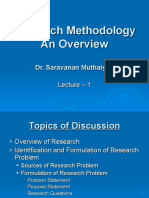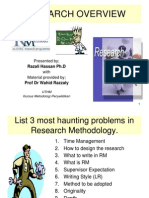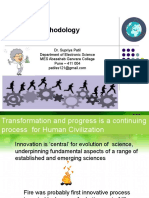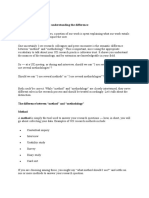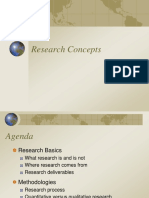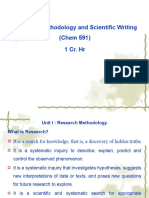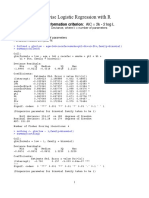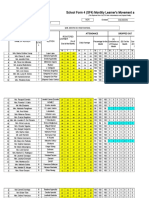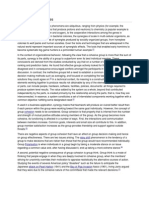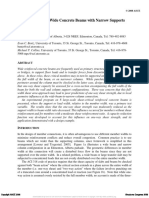0% found this document useful (0 votes)
72 views7 pagesResearch Methodology Guide For Beginners
The 'Research Methodology Guide for Beginners' provides a comprehensive overview of research concepts, including formulation, design, data collection, analysis, ethics, and report writing. It emphasizes the importance of motivation, objectives, and various research methods while outlining the steps involved in conducting research and the significance of ethical practices. The guide aims to equip beginners with the foundational knowledge necessary to embark on their research journey effectively.
Uploaded by
ANIRUDDHA ADAKCopyright
© © All Rights Reserved
We take content rights seriously. If you suspect this is your content, claim it here.
Available Formats
Download as PDF, TXT or read online on Scribd
0% found this document useful (0 votes)
72 views7 pagesResearch Methodology Guide For Beginners
The 'Research Methodology Guide for Beginners' provides a comprehensive overview of research concepts, including formulation, design, data collection, analysis, ethics, and report writing. It emphasizes the importance of motivation, objectives, and various research methods while outlining the steps involved in conducting research and the significance of ethical practices. The guide aims to equip beginners with the foundational knowledge necessary to embark on their research journey effectively.
Uploaded by
ANIRUDDHA ADAKCopyright
© © All Rights Reserved
We take content rights seriously. If you suspect this is your content, claim it here.
Available Formats
Download as PDF, TXT or read online on Scribd
/ 7








